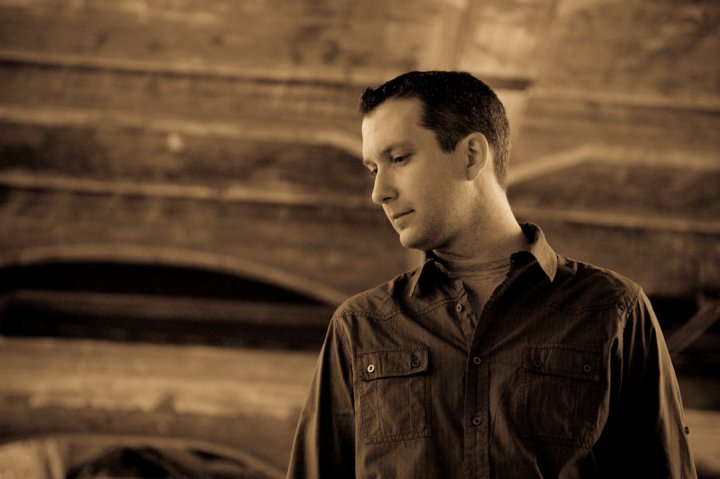Anxiety and God’s will
- At January 09, 2013
- By Nathan
- In Career & Life Planning
 0
0
J.I. Packer and Carolyn Nystrom wrote God’s Will: Finding Guidance for Everyday Decisions specifically for Christian people who feel stressed, anxious, and fearful as they face the future. Which is to say, that this book isn’t primarily intended for frantic atheists, tense secular folk, or calm and collected Christians either.
Christian? Check. Traumatized by this topic? Check. Then, you might want to read this book -and read it slowly.
Bringing up God’s will may seem to complicate the whole decision-making process. Less stress does sometimes result from reducing the number of wills involved. Eject God straightaway and you have one less will to worry about; or so some people say. But then again, you might end up with billions of little gods running wild, a whole lot more anxiety in this world, and heavy-handed governments rising up all around to control the chaos.
That last sentence was a bit on the heavy side. But perhaps it needed to be said nonetheless.
Career counsellors who don’t believe in God (or are not allowed to talk about it if they do) naturally omit a thorough discussion about discerning God’s will. The title that comes up again and again, popping up all over the place, is rather something like this: Bob’s Will: Helping Bob Figure Out What He Wants to do With His Life. Admittedly, this formula usually works well, for men and women with various names, and provides a genuine service to many people. Unless, of course, it turns out that “Bob” is considering, say, joining a gang and selling drugs to kids down the street.
It will come as no surprise, that a careful reading of J.I. Packer’s and Carolyn Nystrom’s book would lead to the conclusion that routinely destroying other people’s lives is not God’s will. But it might still be Bob’s.
Most Christians, of course, are not sitting at home in front of their computers agonizing over whether or not to join the Hell’s Angels or another gang promoting organized crime. “Should I sell heroin or cocaine this year?” Decisions, decisions. To be fair, very difficult situations can arise – quite apart from any reference to criminal activity. And if you are faced with trying to choose what is best, when all of the options look bad, begin towards the end of this book.
Otherwise, begin at the beginning. Begin with a discussion of Psalm 23. Begin by reflecting on words of comfort and reassurance if you are “running silly” or “running scared.” From there, you will be reminded that although God will guide you, this doesn’t mean that it is going to be easy or that your next step will be immediately obvious. Shortly after that, there is an invitation to reflect on Romans 12:1-2 and consider that your level of internal spiritual health will determine in part how well you are able to make wise decisions in daily life.
And then, from chapter four on, the balancing act begins. The authors are attempting to simultaneously guide anxious Christians away from a “superspiritual” and a “subspiritual” approach to discerning God’s will for their lives.
On the one hand, there is a strong emphasis on trying to understand what God has already revealed in the Bible. There is also encouragement to actively seek wisdom, to consult friends, and generally, to make good use of all the God-given abilities, insights, and resources at your disposal. But, at the same time, there is a cautious openness to more direct forms of guidance (i.e. dreams, visions, words of wisdom, an inner sense, etc.).
Balance is required. It isn’t a good idea to totally tip one way or the other. That is the point. Endless hazy talk that begins to sound like spiritual mumbo-jumbo isn’t the answer. And neither is an extreme figure-it-all-out-yourself attitude.
The anxiety and fear observed among Christian people is, in the authors’ judgement, presently due to an inappropriate and unbalanced emphasis on special forms of guidance. Would you agree? The result is that if nothing spectacular, sensational, or out of the ordinary happens many struggle to make decisions with confidence. People don’t feel like they are been led. They stand still – stuck – when they should be moving ahead.
But what has happened in the past may not necessarily happen in every situation in the future. Keep this point in mind. Praying is always a good idea. But praying and expecting God to show you exactly what to do, and in no uncertain terms, according to your preferred method, well, that might be a tad unrealistic and cause for unnecessary anxiety and concern.
This, at least as far as I can tell, is what J.I. Packer and Carolyn Nystrom are trying to say. And this is also, I think, helpful advice.
While come mistakenly avoid talking about God’s will, Christians (myself included) sometimes approach this topic in an inappropriate and unhelpful way.
© Career & Life Direction 2013. All rights reserved.
Causing offense
- At January 05, 2013
- By Nathan
- In Career & Life Planning
 0
0
Over 10 years ago, I got to know a man from Guatemala named Gustavo.
It was interesting to meet people from a variety of countries and cultures living in Vancouver, BC.
Like many others, Gustavo had moved to Canada and the lower mainland hoping for a better life. And yes, while this isn’t his real picture Gustavo is his real name.
Back then, my wife and I often travelled to northern British Columbia during the summer in order to work in the Rocky Mountains; going to college wasn’t cheap and we had bills to pay. One year, Gustavo signed up to be on my tree planting crew for the season. It was good to have him on the team. For I enjoyed Gustavo and considered him to be a friend.
But something happened during that summer which ended the relationship. And I still feel bad about it. It wasn’t really about anything I did; it was more about what I didn’t do. But regardless of the cause the result was the same: Gustavo was deeply hurt and offended -although I still do not understand exactly why. But my guess is that he felt disrespected because of how a few people on the crew had treated him.
Looking at it through North American eyes, what happened was no big deal and all in good fun. But that is not how Gustavo saw it. Of this, I am sure. He left the very next day, and I haven’t seen or heard from him since.
Please understand that I am telling this story in order to point out my own mistakes and to introduce a relevant topic. It is not at all my desire to cause further offense in so doing. The point here is that I should have made more of an effort to understand a friend who came from a different country and culture.
Causing offense, even accidentally, can lead to serious problems. Life quickly becomes more stressful and more difficult. An offense seldom improves a situation. But nobody needed to tell you that.
Proverbs 18:19 confirms what we already know. Reflecting on this verse, as well as personal experience, I recently submitted a guest post to a career company in the USA entitled, “Three Ways to Avoid Causing Offense at the Office (and Everywhere Else).”
Would you like to avoid causing offense? Read the advice I should have followed many years ago.
*As always, if you have a question or concern, please click on “Contact information” at the bottom of the page and send in your thoughts. To leave a public comment, click on the grey conversation bubble at the top and to the right of each post.
© Career & Life Direction 2013. All rights reserved.
Rip-roaring resolutions
- At December 31, 2012
- By Nathan
- In Career & Life Planning
 0
0
Wouldn’t you know it. I couldn’t think of a thing to say – not a single thing. Nothing substantial came to mind.
I thought and waited and waited and thought and thought and waited some more. But still, no new years resolutions appeared. Nothing cute or clever; nothing simple or profound; no, nothing much at all.
Perhaps you can relate; but probably not. Your piece of paper is likely filled with all sorts of great ideas.
In any case, much like the song about the Grinch who stole Christmas, there are three words to describe the result of my recent reflection, and I quote: “Zero! Zip! Zilch!” Yeah, that’s about it. A few rough ideas casually crossed my mind, of course, but nothing worth mentioning or putting into print.
So be it henceforth resolved that I will not be doing much, much at all, in the new year. Or so it seems. What else is there to say? Since no lovely list will likely be forthcoming or magically appear any time soon. What more can be said? Looks like 2013 is shaping up to be a dull and uneventful year, and it hasn’t even started.
Hope you don’t mind if I take a brief break right about now to release a deep yawn. There, that feel much better. All of this talk about a lack of resolutionary talk is making me tired; that, and it is getting late.
By the way, how are your plans and resolutions shaping up for the new year? And do you feel like you are making any progress?
Resolve flows most freely from deep conviction
And while we are at it, what is the purpose of the new years resolution tradition anyway? Is there one? What is the point of writing down a bunch of overly ambitious goals that more often than not won’t be accomplished?
As you can see, this cheery train of thought, this type of ongoing inner reflection, makes for being the life of almost every party. Why join in the Boot Scootin’ Boogie (or whatever PSY has going on) when you can hang out at the punch bowl and reflect on the deeper meaning of life for hours on end? Fun, fun. And why bother catching up with an old friend over coffee when the whole story swapping scene has been called into question? Exactly.
Yep, to make things even worse, my natural tendency is to constantly question why people even talk. It’s true. Anyone still reading this post must think I am crazy or foolish or both. So be it. To be sure, this type of thinking does have a way of putting a damper on lengthy conversations. If it is any consolation, writing makes a little more sense – but not much. For either way, the weirdness that is apparent in a world that didn’t have to exist but nevertheless does is almost too much for me to manage.
Please pause for a moment and consider that each weird and wonderful person on this planet has something to offer, and that each personality type has a role to play.
For being wired in such an unusual way is not without some benefit. From my vantage point it is possible to clearly see that being alive is not normal or necessary. This tendency to be confused by daily conversation has the same effect as reading stories about talking animals or taking a trip to the moon; if you haven’t been to the moon lately imagine another strange place.
When you return to your ordinary reality, as you know, that same old situation doesn’t look quite the same. Culture shock or in this case “conversation shock” sets in. Suddenly you notice that animals don’t talk, that people frequently do, and that it could have been the other way around.
What’s the point? Is there a point?
Well, maybe, just maybe, my inability to produce a list of snappy resolutions for the new year makes sense. As an aside, one obvious reason is that I neglected to ask my wise and witty wife for her suggestions. A recent thirty-second conversation produced half a dozen goals for 2013 that would be sure to serve me well. But that is another story.
My mental roadblock, when it comes to making new year’s resolutions (and probably keeping the too), seems to come down to this: Resolve flows more freely from deep conviction than from arbitrary initiative. So meditating on the former rather than the latter is the place to begin. That was my mistake. In other words, it is necessary to reflect on what is true before deciding what to do. And remember, asking questions is necessary to get answers.
For example, a strong determination to lose weight or gain weight or move a bit of weight from here to there depends on what you are convinced is true. Your health and sense of well-being is important, but is it really true that the shape of your body is the most important thing about you? I don’t think so. Do you?
Probing deeper, are you convinced that your life is valuable whether anybody seems to think it is or not? Why or why not? Something to think about in the new year.
If you begin with the really big questions, the smaller resolutions have a way of more easily falling into place.
© Career & Life Direction 2012. All rights reserved.
Learning to lead
- At December 28, 2012
- By Nathan
- In Leadership
 0
0
A leader with a credible plan inspires confidence. By way of contrast, a leadership team with a deeply flawed plan or no plan at all isn’t going to be leading for long.
Years ago, the Rhinoceros Party had a brilliant plan to build a ramp on the Rocky Mountains to reduce the consumption of gasoline and presumably save the environment. How would that work? Well, people living in western Canada would then be able to get in their cars and coast from coast to coast.
As I recall, another plank in their platform was to train millions of grasshoppers, a.k.a grainhoppers, to carry prairie grain to the coastal ports. This creative transportation system was devised to counter the excessive fees charged by powerful railroad barons.
Yes, this was all a big joke back then. And no, this comical political party didn’t get any votes. An illustration nonetheless that it is very difficult to lead without a plan that people feel inclined to follow.
Dealing with problems
Leading involves, among other things, taking significant action in an attempt to improve an undesirable situation. To point out the obvious, it is also usually assumed that the chosen action will be strategic and well thought out. Leaders are seldom called upon to wait around, staring out their office windows day after day, while naively hoping that everything will work out. But at the same time, a hasty and haphazard decision – a shot from the hip – is rarely well received or what is really required.
Leadership is not for the faint of heart. National problems, organizational issues, and personal roadblocks are often pressing and complex. In such a context, leading the way required a large amount of research, planning, praying, and an ability to weigh various options in a short period of time. More often than not, a cliff of some sort is visible on the horizon; the clock is loudly ticking; time is running out; difficult decisions must be made. And somebody has to make them.
As the old saying goes: “There are those who make things happen, those who watch things happen, and those who wonder what happened.”
Again, being a part of a leadership team requires hard work; it is not an easy task. People in leadership positions are often expected to act quickly and wisely in the best interests of others. If only the best decision was always immediately obvious! Inviting a variety of perspectives is often helpful. But based on my own experience, routinely criticizing what has been proposed is much easier than putting together a new proposal.
When the pressure is on and people all around are looking for action, it may seem like any old course of action will do. Thus the ongoing temptation to appear to be taking appropriate action without doing much that is necessarily truly helpful in the long run.
Developing potential
But whether you are responsible to lead a nation, an organization, a family, or simple yourself, the challenge is the same. First of all, you must identify the most pressing problem you face and put together a plan to deal with it. Positive action is required where it matters the most; you can’t fix everything. Second, it is a good idea to make a point of not doing anything grandiose or downright ridiculous when it comes to finances.
Planning and policy perfection is impossible to obtain from everyone’s perspective. But ego-inflating, utopian, and crackpot ideas are a little more obvious: they can be spotted from a mountain top and even from outer space. With this in mind, it will come as no surprise to be reminded that many people, nations, and organizations urgently need to find a way to balance their budgets and begin to pay off their debt. This problem isn’t merely over in Europe or confined to Washington, D.C.
As millionaires rack up their millions, billionaires pay interest on billions, and trillionaires borrow yet another trillion, many ordinary and average individuals get themselves deeper and deeper into debt. One result of all of this collective digging is that at some point the hole will be so deep that it will be impossible to ever get out.
And what are we all going to do down there?
Financial mismanagement has a way of putting the brakes on a healthy human potential movement, bringing it to a screeching halt. Many institutions, individuals, and empires fail to become all that they were intended to be in part because of a lack of funds. But at the same time, seeking wise financial advice is one way to attempt to reverse this trend and begin to deal with the damage.
Learning to manage your own finances, putting together a solid financial plan, is a good way to prepare to develop your own potential and the potential of many other people.
© Career & Life Direction 2012. All rights reserved.
Bilbo Baggin’s story
- At December 21, 2012
- By Nathan
- In Career & Life Planning
 0
0
Ronald’s little book, the one he wrote primarily for his own children in England, has staying power. Over 70 Christmas celebrations have come and gone since The Hobbit was originally published, and it is still immensely popular.
With Peter Jackson’s recent release of the first part of this book as a major motion picture, now even more people, young and old, will likely be drawn to it.
Have you ever wondered why this particular story is so appealing to so many people? Having recently read the book and watched The Hobbit: An Unexpected Journey this question lingers in my mind.
This story, this fantastic tale filled with wonder and adventure, sets the stage for J.R.R. Tolkien’s equally famous trilogy The Lord of the Rings. To crack open any of these books is to drop into an alternative universe filled with mysterious places like Middle Earth, Rivendell, Mirkwood Forest and many unusual creatures.
After meeting the dwarf king, Thorin Oakenshield, together with Gandalf the good wizard, Beorn the bear-man, Gollum, Elrond, and the Elvenking Thranduil it is difficult to return to “ordinary life” without a greater sense of wonder and a growing desire for more adventure.
Bilbo Baggins, the main character in The Hobbit, is in no need of an introduction by now. It is well-known that Bilbo was a small, comfort loving creature (and a bit of a self-absorbed snob) who had no desire to set out on any unexpected or dangerous journeys – no desire at all. But then Gandalf shows up, a dozen or so dwarves drop in uninvited, and soon Bilbo finds himself signed up to help the dwarves reclaim their mountain home and recover their lost treasure.
Bilbo is in for quite an adventure. Even at the beginning, it becomes clear that this would be a perilous quest and not at all an easy task.
All that was required was to travel, over many months, through miles of wilderness and rocky terrain filled with hundreds of hideous creatures like gobins, trolls, wargs, orcs, and giant spiders, not to mention dark magic spells. No problem. And if they ever made it to The Lonely Mountain alive (which was highly unlikely) it would then be necessary to find a way to defeat the fearsome dragon, Smaug the Magnificent, on his own turf.
Any volunteers?
It gets worse. Dangerous internal enemies would need to be conquered and subdued at the same time. The stubborn nature and blatant greed of the dwarf king poses a serious problem to the preservation of peace in Middle Earth. As well, fear in Bilbo’s heart would need to be replaced with courage. And the power of the Dark Lord, Sauron, was not to be underestimated. Many creatures were at risk of bending and twisting their will to follow his cruel desires.
Hope is hard to come by in this story. Impending doom lingers throughout this tale. At every turn, it appears that Bilbo’s small group of friends will be defeated and quickly destroyed.
Without giving too much away, it becomes abundantly clear that one hobbit and thirteen dwarves cannot make it there and back again even with the aid of one wonderful wizard. Luck, fate, or more accurately, providence, is what makes the biggest difference in the outcome of their spectacular adventure.
So getting back to our question: Could it be that this story is so compelling in part because so many people can relate to Bilbo Baggins?
We feel small and inclined to be content with personal comfort; and yet, we wake up one morning in the middle of a unpleasent adventure we did not choose; we sense that the forces against us are overwhelming; and still, we struggle to rise to the occasion and face the future with courage rather than fear.
Could it be that many of us need to be encouraged to maintain a sense of hope in what appears to be a hopeless situation?
Ronald Tolkien lost both of his parents early on in life and most of his friends. Disease and the First World War brought them all to an untimely end. But his story didn’t end with discouragement and defeat; it didn’t have to end that way.
And as another Christmas season approaches, may I suggest that neither does yours or mine.
© Career & Life Direction 2012. All rights reserved.
Stepping stones
- At December 15, 2012
- By Nathan
- In Career & Life Planning
 0
0
Saving money is always a good idea. If you don’t know what else to do, if you are unsure which life direction to take, find your way to the nearest bank and open a savings account.
Don’t trust the banks? Start your own under the floor boards. Stash some cash in an old coffee can. Park a few pennies in a piggy bank. Then, wait until you are in a position to strategically focus your spending. Save until you can see your way ahead.
Does that sound like a good idea? If you are lacking vision right now, how about investing in a “Life Launch” fund in the meantime? The cash will be sure to come in handy someday.
Money isn’t everything but it makes a difference
Being broke isn’t exactly the best way to start out in life or to finish off your journey either. Lacking financial resources is a liability: It won’t help or improve your situation. It will hold you back and block your way.
But the problem is that saving money is admittedly easy to recommend and often very difficult to do. Spending money is usually no problem at all. Making the money and saving the money – that’s the problem. For saving lacks the immediate excitement and instant gratification connected to spending. And even if you really want to set some money aside it can be a challenge.
If the economic situation is bleak where you happen to live, saving anything substantial may seem impossible. But what is the alternative in terms of financial goals? More credit? More debt?
Learning to live beyond your means early on in life won’t lead to a growing sense of peace and satisfaction and accomplishment as the years go by. It will lead rather to frustration and discontent. Acquiring a few shiny things might impress a few people and improve your social standing for a few brief moments. But that is about it. Having adventures is all fine and good, but somebody has to pay the bills.
By way of contrast, learning how to use money wisely is part of what is involved in growing up. Learning how to live within your means and provide for your own needs is part of the maturing process.
So take the time to reflect on your financial goals. Think about your future. Try to picture where you will be in 10 or 20 years if your earning potential and spending habits do not change. Avoid anxiety but face reality.
And if this encouragement to save sounds “unspiritual” and contrary to a life that is focused on trusting in God, consider that God often provides through people who have extra cash on hand partly because of good money management. That is how it works. Entertaining the illusion that humanity can get on quite nicely without God is a huge mistake. But still, each person and organization is responsible to do what they can with what they have.
Money isn’t everything but it makes a difference.
If you want to cross a stream, if you hope to reach the other side, it will be necessary to find a few solid and well-placed stones.
© Career & Life Direction 2012. All rights reserved.
Positive problems
- At December 08, 2012
- By Nathan
- In Career & Life Planning
 0
0
Problems and pressure. If you want to develop your personal potential or the potential of your organization or nation it may be beneficial to find a few more problems and feel some pressure.
It goes without saying, that feeling forced isn’t usually much fun. Most of us would likely prefer to feel free to make decisions at our leisure. But very little of consequence is accomplished if everyone is always feeling comfortable and carefree. Necessity is the mother of all inventions for a reason and not perpetual prosperity.
Too much time spent at the country club or on vacation leads to personal stagnation and, when added together, national decline. Illusions of endless peace or economic growth will also inspire few to take action. Meanwhile, deadlines and a sense of urgency actually works to your advantage.
Duty and danger, for example, cause many to rise to the occasion and accomplish what seemed absolutely impossible moments ago. Personal limits are surpassed under pressure.
This isn’t to say that depriving or otherwise applying pressure to others is usually a good idea. Parenting, coaching, management, friendships, and international relationships require diplomacy and great care. Creating a pressure-cooker environment isn’t normally a good way of relating. Too much pressure and too many problems is counterproductive: people soon feel overwhelmed and threatened. The crank-up-the-pressure method is unnecessarily provocative as a standard approach, creating discouragement, resentment and little that is positive.
That said, very few people or organizations – not to mention entire nations – will ever reach their full potential without some form of outside pressure. Graduation is approaching, bills need to be paid, the budget must be balanced, the Barbarians are at the gate, etc. Action is required and decisions must be made – before it is too late.
Facing a difficult situation and even embracing adversity often makes sense. While some problems can be devastating, others will one day be regarded as friends. So invite them in. Allow problems to have a positive influence in your life. Accept pressure as a part of the process.
As you know, my home country, Canada, has vast natural resources, very few people, and limited capabilities in terms of national defence. At the same time, many of Canada’s major allies are presently struggling in a world that is arguably becoming a more dangerous place. Power is shifting. While this isn’t all bad, the reality is that global tyrants abound; dictators are a dime a dozen. And potentially hostile nations are arming fast. To make the situation worse, our fleet of CF-18 fighter planes is wearing out and will soon need to be replaced.
No, this may not be the worst of times down here on the earth, but it sure isn’t the best of times either. While my home province, Saskatchewan, is doing better than it has before, many other places on the planet are in rough shape.
Back to Canada. So rather than hearing politicians discussing matters of comparatively little consequence, it is now possible to listen to a lively debate concerning which type of fighter plane Canada should buy. Will F-35s be parked on the tarmac, roaring down the runways, or evading enemy radar beyond the horizon in the not-too-distant future? I don’t know. But I do know, that if our trading partners and allies were strong, if the world felt safe, and if our dated planes were good for another 50 years or so, we would probably continue to be comparatively weak and dependent as a nation for many years to come.
With fewer problems and less incentive to change, Canadians would likely wake up one morning tragically late only to discover that their resource strength and military weakness had not gone unnoticed.
As it is, my home country has been forced to grow and develop. I suppose it could be said that Canada is growing up. Rather than practicing our posture as sitting ducks, economic development is now slowly being supported by a growing capacity for self-defence.
Problems and pressure have a positive role to play.
Do you have a pressing problem that might eventually work out for your benefit? Is your country facing a difficult situation that could help you reach your true collective potential?
It has been observed many times before that problems can be positive. Adversity can work to your advantage. So let hardship help you move ahead.
© Career & Life Direction 2012. All rights reserved.
Sustaining your focus
- At December 02, 2012
- By Nathan
- In Leadership
 0
0
Vision. An ability to intensely focus your attention is a desirable quality particularly for people who lead organizations. For then, important and specific tasks are routinely accomplished and in short order. Bursts and blasts of productive energy address objectives that fit together and plug into a larger plan.
Other people are sure to be pleased, especially when their company or church or ministry or country seems to be moving towards an appealing destination and accomplishing worthwhile goals.
Paying close attention to a compelling vision can have far-reaching consequences as the years go by. The results are usually positive in every way. Yes, everyone benefits. But how do you sustain your focus day after day, month after month, and year after year? What do you do if you feel like your sense of passion is beginning to fade?
Fireworks can’t go on forever
For better or worse, intense people stand out; they get noticed. An amateur video of some guy snoring on a couch will not be the one that goes viral.
Most people want to be around someone who is excited about where they are going and what they are doing. Dynamic and charismatic leaders who are able to cast a clear vision and then inspire others to make it happen will always be in demand.
There is, however, much more to life and leadership than waving the flag, rallying the troops, and leading the charge. Passion and emotion has its place. People with sanguine and choleric personalities also have a role to play. But an overly intense way of managing an organization, or for that matter dealing with daily life, is difficult to sustain for very long. True, some people seem to have an incredible amount of stamina and energy and drive. But even then, incredibly intense people eventually wear themselves out.
Years ago, I met a young man running down the side of a mountain while I was hiking up. Working at a ski hill in the summer, it was not common to meet very many people on the grassy slopes – let alone some crazy character running downhill at high speeds. Most people, of course, would usually ski in the winter where this man was running in the summer. And some of the trails were quite steep and even dangerous.
As I recall, his clothes were torn and he was bleeding as he stood their catching his breath. Said something about the thrill of it all, mentioned a broken bone or two from previous outings, and then he was off. I never heard if he made it all the way down in one piece.
Burning the candle at both ends soon makes for a very dark night. Even if your focus is on an activity that makes a lot more sense, a flash in the pan quickly fades. The fireworks can’t go on forever. Day after day, month after month, year after year, the incredible amount of energy that is exerted begins to take its toll.
Is it possible to sustain a clear sense of vision and focus and direction over a lifetime? It all depends on what you mean by that. Although it is probably not realistic to expect that you will always be on a positive emotional high. Feelings do not always flow freely. Occasionally, maybe even quite often, it will be necessary to educate your emotions.
How does that work? Take a few hours, or even a few moments, to meditate or reflect on that this world would be like if nobody ever did anything that you do. What would life be like, for example, if nobody ever took the time to write any helpful or encouraging words? That is what I am attempted to do at the moment. Would it really matter if nobody ever did?
Yes, I can see clearly that it would. This exercise has already produced a response deep in my soul. And I have been encouraged to carry on and finally finish this post.
Be enthusiastic. Work and even run towards your goals. But don’t forget to pace yourself and renew your vision along the way.
© Career & Life Direction 2012. All rights reserved.
Your clearness committee
- At November 24, 2012
- By Nathan
- In Career & Life Planning
 0
0
Major decisions can have far-reaching consequences. Making a wise decision that is a fit with who you are as a person can be a challenge. One way to improve the chances of personal success is to organize your own clearness committee before spontaneously launching out in a new direction.
It isn’t a good idea to get into the habit of making large decisions all alone.
Clearness committees have been around now for over 300 years. Although this term can be traced back to the Quakers, many other groups of Christians emphasis the importance of seeking wise counsel. And for that matter, this concept comes across to many people as simply common sense. But the problem is that it isn’t always immediately obvious to young people, etc. how to invite the input of others.
Organizing a clearness committee is one way to go about gaining insight when you are faced with a significant life decision.
The use of language changes over the years. Words can become emotionally charged in a negative way. For any number of reasons, committees have developed a bad reputation. Most people would rather not go there. When you hear “committee” your knee-jerk reaction may be to quickly get away.
For one thing, committee meetings usually take place in the evening when you are already tired after a busy day. It can feel like one more event to squeeze into an already hectic schedule; another item on your agenda that you would be happy to avoid. Then, these group meetings often lack the structure and focus that is required in order to make the time spent positive and productive.
Committee meetings have been known to go on and on and on into the night accomplishing very little by the break of day. Exhausted and frustrated, you finally make your way home in a bad mood.
And let’s face it: Any time when you get a diverse group of people in one small room for a long period of time it isn’t always a good thing. Some tend to take over. Others refuse to engage in the discussion. Soon small details take up large amounts of time. There is one diversion after another. Rabbit trails multiply. Personalities clash. Before long, the conversation takes a wrong turn – the debate gets nasty and personal. People pick sides and exchange words, etc.
Who would want to be a part of that?
The strength of a committee, however, is that a wide variety of insights and perspectives are available to address the problem at hand. Insight and perspective: that is what you need right now in order to make a wise decision that will impact your future in a positive way.
How does a clearness committee work?
First of all, you need to sit down and take some time to write down what you are thinking about doing and why. Go into as much detail as you can. Let’s say you are considering moving to Madagascar to teach Canadian tourists how to commune with large sharks out in the open ocean. Try to answer the who, when, where, why, and how questions. Maybe you could start by making a note of how fast you can swim and how much life insurance you have. Go from there.
Next, call up 5 or 6 people you know and trust and ask them to meet with you for 2-3 hours. Be clear that you are not asking them to give you advice or tell you what to do. The idea is to have others ask you questions and possibly make observations in order to clarify what you think you should do. Set a date and then send your friends what you have written a few days in advance so they have time to think about your situation.
When you meet, ask someone to lead your clearness committee and enforce the observation-and-question-only rule. Ask someone else to take brief notes of what is said during your time together. This will provide the basic structure and allow you to reflect on the insights that were offered later on.
Be prepared for awkward moments of silence. It is okay to not always have the air filled with words. But, at the same time, be prepared to benefit from the many thoughtful questions and observations your friends will offer.
This brief discussion isn’t intended as an endorsement of everything any particular Quaker person or group may believe. Nor is this to be taken to suggest that a quest for “inner truth” sums up the whole decision-making process. But this is one way you can begin to move beyond an excessively individualistic way of life and hopefully make better decisions.
By way of full disclosure, I have never organized or been a part of a clearness committee. But I wish I had. Looking back, this type of encouragement and support would surely have been beneficial early on.
So think about your future. Take the initiative. Do what you need to do in order to make wise decisions today.
© Career & Life Direction 2012. All rights reserved.
Avoiding codependent chaos
- At November 21, 2012
- By Nathan
- In Career & Life Planning
 0
0
Dysfunction is a part of life. Anyone who owns a computer or has lived very long with their eyes open knows this full well. Things break down – often. Relationships as well as nations and organizations don’t always work or function as well as they could. Sometimes it seems like they hardly ever do.
Have a look around and you will find conflict and tension, problems here and problems there, situations and issues – conditions that are chronic and costly.
The buck doesn’t always have to stop with you
So be encouraged. You are in good company. If things seem to be falling apart all around you it only means that you are a full member of a created order that has taken a wrong turn. You are simply a part of what theologians sometimes refer to as the “fallen” human race.
If you want to always have work and be in demand figure out how to fix something. Become a nurse, a doctor, or an engineer. Consider a career as a mechanic or a carpenter. Get into politics. Become a pastor or a priest. Develop a herbicide or a vaccine. Train to be a police man or women, etc.
The global repair business is and always will be wide open.
In an ideal world, relationships would always be healthy and mutually beneficial. But it doesn’t always work that way. Nobody I know is completely healthy or whole and my friends and acquaintances would surely say the same thing about me. If you happen to bump into someone who has it all together, please write and tell me all about your truly remarkable friend.
Codependency was first observed in proximity to alcoholics. This term originally described relationships that were distorted because of an addiction. How did it work? One person got addicted to a substance while another became addicted to an unhealthy way of dealing with an addict. One person needed alcohol too much and it was destroying their life. Meanwhile, the other person needed to rescue or take excessive responsibility for their alcoholic spouse, etc. And this habit was almost destroying theirs.
People who are codependent need to learn to let go and let others make their own mistakes and take responsibility for their own actions. People who are codependent need to learn how to start living their own lives.
In order to avoid this problem it is a good idea to occasionally ask yourself what you are not responsible for. May I suggest that you are not responsible for everything that takes place in the universe. Some situations in your country or your community or your church or your family or your circle of friends may also be beyond your control. The buck stops somewhere but it doesn’t always have to stop with you. Even if you are leading an organization, you cannot be held responsible for absolutely everything that happens in your organization. Draw a line.
Learn to think and tactfully say, “That is your problem and not mine. You need to deal with it – I don’t.” This may sound cold and selfish to some who are determined to be all things to all people, to rescue everyone and fix everything everywhere, and who delight in pushing themselves towards the edge of another nervous breakdown. But to others this will make perfect sense and come as a great relief.
It is possible to be a caring individual without necessarily becoming codependent. Keep in mind that caring in a codependent sense doesn’t help anybody in the end.
And it certainly won’t help you move ahead and make a difference with your life.
© Career & Life Direction 2012. All rights reserved.
Parker’s point
- At November 16, 2012
- By Nathan
- In Career & Life Planning
 0
0
Parker Palmer has a point.
He has something to say to young people who are starting out in life; a word of wisdom to those who have been at it for a while; and even a message for some in their senior years.
What he has to say has been said before – by many different people and in many different ways. But after putting down Let Your Life Speak: Listening for the Voice of Vocation somehow I appreciate Parker’s well-established point in a whole new way. For much of his life story is presented as a poignant illustration.
Raised to think that he could do anything, endowed with great expectation, Parker set out as an unstoppable “golden boy” only to quickly be confronted with his own failure and limitations. Oddly enough, it was after acquiring a Ph.D. from Berkeley that the cracks in his vocational direction began to show.
Looking back, he would come to realize that he was never suited for a career inside the academy. He wasn’t wired that way. If only he would have known.
But he wasn’t happy with his role as a community organizer in Washington, D.C. either. After five years it became clear that this definitely was not a fit. His strong sense was that he was living someone else’s life in the process of genuinely trying to do some good in the world. Life wasn’t working. There was too much inner tension It was time to move on, again.
What was the point of doing lots of genuinely good things that were not genuinely his to do? What was the point of trying to be someone he was not?
But, then again, what was he best suited for? What should a Parker J. Palmer type of a person be doing with his life? Midway through life, he needed to decide. The pressure was on. Unfortunately, this was not a question that was easily answered; it would take time and involve much turmoil and trouble.
His journey towards self and vocational discovery involved a decade long stopover at a Quaker community near Philadelphia called Pendle Hill. It also involved a serious battle with depression. Not that these two life events were connected. Both experiences, however, served to slowly clarify the direction his life would take.
Years of darkness and confusion would one day give way to greater light.
Trial and error. Community and reflection. Outer struggles and inner darkness. Over the years, Parker Palmer would eventually discover that he was a teacher, a writer, and an activist. That is what he was most suited for. That is what his authentic self almost insisted that he should be. Read what he has accomplished towards the end of this brief book and you might get the impression that Parker Palmer finally found his true calling.
Parker’s story is…well, Parker’s story. It may not be precisely like yours or exactly like mine. But Parker has a point nonetheless: It is very important to pay attention and listen to your life.
This internal focus may not be the whole story. But this is something you might want to seriously consider if you feel like you are living somebody else’s life.
© Career & Life Direction 2012. All rights reserved.












































